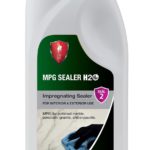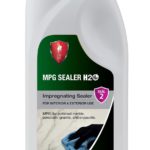Boosting Running Performance with Strategic Nutritional Choices
Runners possess unique physiological requirements that necessitate a meticulously planned assortment of nutrients to achieve their ultimate potential. In this section, we will delve into how runners can effectively integrate nutritional supplements into their daily routines to satisfy their distinctive dietary needs. A well-rounded intake of macronutrients and micronutrients, alongside adequate hydration, is imperative for optimising both athletic performance and recovery. Let us examine these essential elements in greater detail.
Exploring the Essential Roles of Macronutrients for Runners

The primary three macronutrients—carbohydrates, proteins, and fats—play crucial roles in the lives of runners, each contributing significantly to the maintenance of energy levels, muscle recovery, and overall health and vitality. Carbohydrates serve as the fundamental energy source, particularly during high-intensity runs, where they are converted into glycogen and stored within muscles and the liver, readily available for exertion during demanding activities. Including complex carbohydrates, such as whole grains and fruits, in one’s diet is especially advantageous for preserving energy throughout lengthy running sessions.
Proteins are indispensable for the repair and growth of muscle tissue, especially following rigorous training sessions. They are vital for mending the micro-tears that occur in muscle fibres as a result of intense exercise. Runners should focus on high-quality lean protein sources, including chicken, fish, legumes, and various plant-based proteins. This not only enhances recovery but also contributes to increased muscle mass and strength, both of which are essential for elevating athletic performance.
Fats play a secondary yet important role as an energy source during prolonged endurance runs. Healthy fats, found in foods such as avocados, nuts, and olive oil, provide a concentrated source of energy and are necessary for the absorption of fat-soluble vitamins. Runners should strive for a well-balanced diet that incorporates these macronutrients effectively, recognising that the ideal proportions may differ based on individual training intensities and personal fitness goals.
Uncovering Key Micronutrients for Enhanced Athletic Performance
In addition to macronutrients, micronutrients, which include vitamins and minerals, play a vital role in boosting a runner’s performance and recovery. These nutrients are critical for numerous metabolic processes, including energy conversion, muscle contraction, and the recovery phase following strenuous workouts. For instance, B vitamins are essential for energy metabolism, while vitamin D is crucial for calcium absorption, which is vital for maintaining strong bones and overall well-being.
Essential minerals such as calcium, magnesium, and potassium are necessary for optimal muscle function and preventing cramps during physical activity. Calcium contributes to bone strength, while magnesium facilitates muscle recovery and energy production. Potassium is vital for sustaining electrolyte balance, particularly significant in long-distance running scenarios where considerable fluid loss occurs through perspiration.
To ensure that they fulfil their micronutrient requirements, runners should aim for a diverse diet abundant in fruits, vegetables, nuts, and whole grains. However, many runners may struggle to meet their micronutrient needs solely through food, particularly during periods of high-intensity training. This is where nutritional supplements can prove immensely beneficial, bridging dietary gaps and ensuring peak performance capabilities.
The Vital Importance of Hydration and Electrolyte Balance
Proper hydration is frequently undervalued, yet it is essential for any runner aspiring to achieve peak performance. During exercise, particularly in warm conditions or during intense workouts, dehydration can lead to fatigue, muscle cramps, and reduced performance. Maintaining consistent fluid intake before, during, and after runs is imperative for achieving optimum hydration levels.
Electrolytes—such as sodium, potassium, and magnesium—are lost through sweating and must be replenished to maintain peak performance. An imbalance in electrolytes can lead to muscle cramps and heat-related illnesses. Runners should consider integrating electrolyte-rich drinks or supplements, especially during long runs or competitive events, to maintain balance and enhance performance.
To optimise hydration, runners should monitor their fluid intake throughout the day and during running sessions. Carrying a water bottle while training can foster consistent hydration habits. For extended runs, utilising electrolyte tablets or drinks can provide essential replenishment, thereby improving performance capabilities.
Timing Nutrient Intake for Maximum Performance Enhancement

The timing of nutrient consumption is crucial for runners aiming to maximise their performance and recovery outcomes. Consuming the appropriate nutrients at designated times can significantly impact energy levels and recovery processes. Pre-run nutrition is crucial for preparing the body; runners should aim to consume a meal abundant in carbohydrates and moderate in protein approximately 2-3 hours before running. This practice ensures that glycogen stores are adequately replenished, empowering the body for the impending run.
During a run, especially over longer distances, quickly digestible carbohydrates like energy gels or chews can supply an immediate energy surge, helping to stabilise blood sugar levels. This approach prevents the dreaded “bonk,” where energy levels drop sharply, negatively impacting performance.
Post-run recovery is equally significant. Consuming a meal or snack rich in protein and carbohydrates within 30 minutes to two hours after running assists in replenishing glycogen stores and repairing muscle damage. This strategic timing is vital for effective recovery and prepares the body for subsequent training sessions.
Customising Nutrition to Suit the Diverse Dietary Needs of Runners
Every runner has unique dietary needs shaped by personal health, lifestyle choices, and dietary preferences. Some may adhere to specific diets, such as vegan or ketogenic, necessitating specialised approaches to meet nutritional demands without compromising performance. Runners with food allergies or intolerances must be vigilant in selecting foods and supplements that comply with their dietary restrictions.
For example, vegan runners can benefit from plant-based protein powders to support muscle recovery, while those following a gluten-free diet can seek gluten-free energy bars or gels. Successfully navigating these dietary restrictions while meeting the nutritional demands of their training is crucial for achieving success.
Consulting a nutritionist can provide invaluable support in personalising a runner’s diet, ensuring they receive all necessary nutrients without sacrificing their dietary preferences. By addressing specific dietary considerations, runners can maintain optimal health and performance, regardless of their unique nutritional challenges.
Exploring Popular Supplements for Runners' Performance Enhancement
As runners navigate their intricate nutritional landscape, supplements can serve as valuable tools to enhance performance, recovery, and overall well-being. This section scrutinises various types of supplements preferred by runners, highlighting their benefits and applications.
Energy Gels and Chews: Instant Energy Solutions for Endurance Runners

Energy gels and chews have become essential for runners seeking quick and effective energy sources during training and races. These products are designed for rapid digestion and deliver an instant surge of carbohydrates, crucial for sustaining energy levels over prolonged distances. The portable nature of energy gels, typically packaged in handy packets, allows runners to consume them effortlessly while on the move, making them ideal for both training sessions and competitive events.
Typically, energy gels consist of simple sugars that provide immediate energy. They are formulated for consumption without the need for water, though pairing them with hydration can enhance absorption. Many runners find that taking energy gels every 45 minutes to an hour during long runs helps maintain energy stability and stave off fatigue. Some brands even incorporate electrolytes into their gels, offering the added benefit of replenishing essential minerals lost through perspiration.
Chews present an enjoyable alternative to gels, often available in a variety of flavours and textures. They can be more appealing for certain runners and deliver a similar carbohydrate boost. The choice between gels and chews often comes down to personal preference, but both significantly enhance endurance and performance during running activities.
Protein Powders and Bars: Essential Components for Optimal Recovery
Post-run recovery is where protein powders and bars truly excel. As runners engage in rigorous training, their muscles endure stress and micro-tears requiring ample protein for effective repair and growth. Protein powders, available in various forms such as whey, casein, and plant-based options, enable runners to seamlessly supplement their diets after workouts. Mixing protein powder into smoothies or shakes provides a convenient method to meet protein requirements without necessitating a full meal.
Protein bars offer another excellent option, providing a portable and practical solution for recovery on the go. These bars are typically formulated with a balance of protein and carbohydrates, making them ideal for restoring energy levels and supporting muscle recovery after a run. When selecting protein bars, runners should choose those with minimal added sugars and made from whole food ingredients to maximise their nutritional benefits.
The timing of protein intake is also crucial. Research indicates that consuming protein within 30 minutes post-exercise can significantly enhance muscle recovery and growth. Consequently, incorporating protein supplements into a runner's post-workout routine can improve overall performance and reduce injury risk.
Multivitamins and Mineral Supplements: Filling Nutritional Gaps for Runners
Even with a well-balanced diet, runners may occasionally fall short of vital vitamins and minerals necessary for optimal performance. This is where multivitamins and mineral supplements come into play, helping to bridge nutritional voids and ensure runners receive adequate micronutrients to support their training.
Multivitamins typically contain a comprehensive assortment of essential vitamins and minerals designed to complement a runner's diet. They can enhance overall health, energy production, and immune function, which are crucial for athletes who may be more susceptible to illness due to demanding training schedules. Specific minerals like iron and zinc are particularly beneficial for maintaining energy levels and promoting immune health, making them vital for runners following restrictive diets.
When selecting multivitamins, runners should prioritise high-quality products from reputable brands, focusing on those that feature bioavailable forms of nutrients for optimal absorption and utilisation. While multivitamins can be a helpful addition to a runner's regimen, they should not replace whole foods, as the body thrives on the diverse array of nutrients sourced from natural foods.
Electrolyte Drinks and Tablets: Essential for Maintaining Hydration
Replenishing electrolytes is crucial for runners, especially during long-distance events or training in warm conditions. Electrolyte drinks and tablets offer a convenient way to restore vital minerals lost through sweat, aiding in maintaining hydration and preventing muscle cramps.
Electrolyte drinks generally contain a blend of sodium, potassium, magnesium, and calcium, all of which are essential for sustaining muscle function and fluid balance. Many runners prefer using these drinks during extended workouts to ensure they remain hydrated and energised. These drinks can be tailored to suit individual preferences, with options available that contain sugar or are sugar-free, accommodating various dietary goals.
Electrolyte tablets provide another practical alternative, allowing runners to supplement their water with electrolytes as needed. This flexibility enables athletes to adjust their intake based on the intensity and duration of their workouts. For those struggling to maintain hydration, incorporating electrolyte supplements can significantly boost performance and diminish the likelihood of heat-related illnesses.
Omega-3 Fatty Acid Supplements: Supporting Inflammation Reduction for Runners
Omega-3 fatty acids have garnered attention for their anti-inflammatory properties, rendering them beneficial for runners seeking to enhance recovery and support joint health. These essential fats are present in fatty fish, flaxseeds, and walnuts, but achieving adequate amounts through diet alone can be challenging. This is where omega-3 supplements become essential.
Research suggests that omega-3 fatty acids can alleviate muscle soreness and inflammation following exercise, promoting faster recovery. For runners, this translates to reduced downtime between training sessions and improved overall performance. Furthermore, omega-3 fatty acids support cardiovascular health, which is vital for endurance athletes relying on optimal heart function during prolonged runs.
When choosing omega-3 supplements, runners should opt for high-quality fish oil or plant-based alternatives that provide sufficient levels of EPA and DHA, the two most biologically active forms of omega-3 fatty acids. Regular supplementation, combined with a balanced diet, can significantly enhance recovery and joint health, enabling runners to train effectively and enjoy their sport.
Determining Optimal Timing and Dosage of Supplements for Runners
Understanding the appropriate timing and dosage of supplements is crucial for maximising a runner’s performance and recovery. Knowing when and how to integrate supplements can significantly influence training outcomes and overall health.
Pre-Run Supplementation Techniques for Optimal Energy Boost
Supplements taken before a run can provide the essential energy boost and hydration necessary for peak performance. Before engaging in any running activity, runners should aim to consume a meal or snack rich in carbohydrates and moderate in protein approximately 2-3 hours prior to the run. This ensures that glycogen stores are adequately stocked and ready for energy expenditure during the workout.
In addition to meals, pre-run supplements such as energy gels or bars can be consumed closer to workout time, ideally 30-60 minutes before starting. This strategy ensures that the body has immediate access to carbohydrates, providing a quick energy source. Some runners may also opt for pre-workout supplements containing ingredients like caffeine, which can enhance performance, increase endurance, and improve focus during training.
Maintaining hydration is another critical aspect of pre-run preparation. Drinking water or an electrolyte beverage before running helps maintain fluid balance and prevent dehydration. Runners should experiment with their pre-run nutrition to ascertain what works best for their bodies, as individual responses can vary significantly.
Fueling During Runs to Sustain Energy Levels
Fueling during a run is vital, particularly for longer distances. Once a runner surpasses 60 minutes of activity, glycogen stores become depleted, leading to fatigue and diminished performance. Consuming the appropriate supplements during runs can aid in sustaining energy levels and mitigate the risk of hitting the wall.
Energy gels, chews, and electrolyte drinks are commonly employed for fuelling during runs. Runners should aim to consume these supplements every 45 minutes to an hour, depending on the length and intensity of their workout. It’s essential to practice during training sessions to determine the optimal timing and types of supplements that best suit individual needs.
Maintaining hydration is equally important. Carrying a water bottle or using hydration packs can help runners stay adequately hydrated. For shorter runs, water may suffice, but for longer durations, incorporating electrolyte drinks ensures that essential minerals are replenished, thereby sustaining performance and stamina levels.
Post-Run Recovery and Nutrient Replenishment Strategies
Post-run recovery is a crucial phase for any runner, as it profoundly influences future performance. Consuming the appropriate supplements after a workout can significantly enhance recovery, reduce muscle soreness, and replenish nutrients lost during exercise.
Immediately following a run, it’s advisable to consume a recovery snack or drink rich in both carbohydrates and proteins. This combination promotes glycogen restoration and muscle fibre repair. Many runners opt for protein shakes, smoothies, or recovery bars that feature a balanced ratio of carbohydrates to protein, facilitating optimal recovery.
Timing is essential post-run; aim to consume recovery nutrition within 30 minutes to two hours following your workout. This time frame is when muscles are most receptive to nutrients, allowing for efficient repair and replenishment. Moreover, staying hydrated after a run is crucial for restoring fluid balance, and electrolyte drinks can further aid in this process.
Establishing a consistent post-run routine that includes appropriate nutrition and hydration can lead to faster recovery times and improved performance in subsequent training sessions, making it a fundamental element of any runner's regimen.
Assessing the Benefits and Risks of Supplementation
As with any aspect of training, the use of supplements presents potential benefits and risks that runners should carefully evaluate. Understanding these factors can empower athletes to make informed decisions regarding their supplementation strategies.
Effectively Enhancing Performance and Recovery through Supplements
When utilised correctly, supplements can significantly elevate performance and recovery for runners. By supplying nutrients that support energy production, muscle repair, and overall health, supplements can enhance endurance, shorten recovery periods, and reduce injury risk. For instance, strategically consuming energy gels during prolonged runs can help maintain blood sugar levels, allowing runners to sustain their performance over longer distances.
Protein supplements play a crucial role in recovery. Research indicates that adequate protein intake post-exercise can stimulate muscle synthesis and lessen soreness, enabling runners to train harder and more frequently. Additionally, micronutrient supplements, such as multivitamins, can bolster overall health, ensuring runners remain in peak condition throughout their training cycles.
Runners who incorporate supplements into a comprehensive nutrition and training plan often report feeling more energetic and capable of surpassing their limits. This enhanced performance can translate into improved race times and personal bests, further motivating runners to continue their athletic journey.
Recognising Potential Side Effects and Allergies
While the benefits of supplements can be substantial, they are not without risks. Some runners might experience side effects such as digestive discomfort, allergic reactions, or adverse interactions with other supplements or medications. Certain energy gels may contain ingredients that upset sensitive stomachs, leading to discomfort during runs.
Moreover, some individuals may have allergies to common supplement components, such as gluten or dairy. It is crucial for runners to read labels carefully and select supplements that align with their dietary needs and restrictions. Consultation with a healthcare provider or nutritionist can help identify potential allergens or sensitivities.
Excessive use of certain supplements may also result in toxicity or imbalances. Runners should be mindful of recommended dosages and avoid overly relying on supplements at the expense of whole foods. Maintaining a balanced approach to nutrition is essential for overall health and performance.
Avoiding Over-Reliance on Supplements
One significant risk associated with supplements is the potential for dependence. While they can be beneficial, supplements should not take the place of whole foods, which provide a broader array of nutrients essential for optimal health. Overuse of supplements can lead to nutritional imbalances, ultimately hindering a runner’s performance and overall well-being.
Runners should prioritise sourcing nutrients from a varied diet rich in fruits, vegetables, whole grains, and lean proteins. Supplements should be viewed as additions to a solid nutritional foundation rather than replacements. Regularly reviewing dietary habits and monitoring supplement use can assist in maintaining a balanced diet and ensuring comprehensive nutrition.
Additionally, an excessive focus on supplements can detract from the importance of proper nutrition, hydration, and recovery practices. Emphasising a holistic approach to health and fitness can yield better long-term results for runners, ensuring they remain healthy and injury-free.
Guidelines for Choosing the Right Supplements
With a vast array of supplements available on the market, selecting the right ones can be daunting for runners. It’s essential to navigate this landscape with care, keeping individual needs, objectives, and overall health in mind.
Assessing Personal Nutritional Needs and Performance Aspirations
Before integrating supplements into their routines, runners should evaluate their unique nutritional needs and performance aspirations. Factors such as training intensity, duration, and dietary preferences greatly influence which supplements may be beneficial. For example, runners engaged in extensive endurance training may require higher levels of carbohydrates and electrolytes compared to those undertaking shorter or less intense workouts.
Identifying dietary gaps is equally vital. Runners following specific diets, such as vegetarian or gluten-free, may need to focus on supplements that provide essential nutrients they might not be receiving from their food intake. Conducting a nutritional assessment with the assistance of a registered dietitian or nutritionist can provide valuable insights into which supplements may be necessary.
Establishing clear performance goals can guide supplement choices. Runners training for a specific race may prioritise energy gels, electrolytes, and recovery proteins to ensure they are adequately prepared for the challenge ahead. Tailoring supplement intake to align with personal objectives can enhance motivation and yield superior results.
Understanding Ingredient Labels and Ensuring Quality in Supplements
Comprehending the composition of supplements is paramount for making informed choices. Runners should always scrutinise labels carefully, focusing on ingredients, dosage recommendations, and potential allergens. This diligent approach ensures that the selected supplement aligns with individual dietary needs and goals.
Some runners may unknowingly select products that contain unnecessary additives, sugars, or artificial ingredients. Opting for high-quality supplements from reputable brands can help mitigate this risk. Certifications from third-party testing organisations can also provide assurance regarding product quality and ingredient accuracy.
Familiarising oneself with common supplement terminology can enhance understanding. Knowing the differences between terms like “natural,” “organic,” and “bioavailable” can empower runners to make better choices that positively impact their health and performance.
Seeking Professional Guidance for Tailored Support
For runners looking to optimise their supplement use, consulting with a nutritionist or coach can provide personalised guidance. These experts can offer tailored recommendations based on individual needs, training programmes, and health goals. They can also assist in assessing the effectiveness of current supplements and suggest necessary adjustments.
A registered dietitian can provide valuable insights into dietary habits and help create a comprehensive nutrition plan that integrates supplements in a balanced manner. Coaches, particularly those experienced in endurance sports, can offer advice on which supplements may enhance performance based on their understanding of the athlete's training.
Regular consultations with nutritionists and coaches can help runners maintain accountability and ensure they are using supplements safely and effectively. This expert guidance can also lead to improved overall health outcomes, enabling runners to achieve their goals with confidence and clarity.
Consistent Monitoring and Adjusting Supplementation Practices
Monitoring the effectiveness of supplements over time is essential for optimising performance. Runners should regularly evaluate how their bodies respond to various supplements and make necessary adjustments. This may involve tracking training performance, recovery times, and overall well-being in relation to supplement intake.
As training intensity and goals evolve, so should supplement strategies. A runner preparing for a marathon may require different supplements than one training for shorter distances. Regularly reassessing supplement options ensures they remain in alignment with current training demands and personal goals.
Paying attention to the body is crucial. If a runner experiences negative effects or does not observe the expected benefits from a supplement, it may be time to reconsider its use. Seeking advice from healthcare professionals can clarify any potential underlying issues that may require attention.
Establishing a flexible and adaptive approach to supplement use fosters a more effective and personalised nutrition strategy for runners, enabling them to thrive in their training and performance.
Integrating Supplements into a Holistic Diet Plan
To fully harness the advantages of supplements, runners must seamlessly weave them into their overall dietary framework. A holistic approach ensures that nutrients operate synergistically, supporting health and performance objectives.
Finding the Right Balance Between Whole Foods and Supplements
While supplements can undoubtedly be beneficial, they should complement—not supplant—a well-rounded diet. Whole foods provide a rich variety of nutrients, fibre, and phytonutrients that supplements alone cannot replicate. Runners should prioritise consuming a diverse array of fruits, vegetables, lean proteins, and whole grains to create a robust nutritional foundation.
Incorporating supplements can help address specific dietary gaps but should not lead to over-reliance. A balanced approach emphasises whole foods while strategically utilising supplements to enhance performance and recovery, ensuring that runners receive comprehensive nutrition to support optimal health and athletic outcomes.
Educating oneself about the nutrient density of various foods can also guide meal planning decisions. Prioritising foods rich in vitamins, minerals, and antioxidants can bolster overall health and endurance, providing a strong base for any training regimen.
Aligning Meal Timing with Supplement Intake
Strategically timing meals and supplement consumption can enhance nutrient absorption and maintain energy levels throughout the day. Runners should aim to synchronise their eating schedules with their training sessions, focusing on pre-run nutrition that fuels performance and post-run meals that promote recovery.
For instance, consuming a balanced meal high in carbohydrates and proteins several hours before a run prepares the body for exertion. Simultaneously, aligning post-run nutrition with the body’s recovery needs ensures that it receives the necessary support after rigorous activity.
It’s also beneficial to consider the timing of supplements concerning meals. Some nutrients are absorbed more effectively when taken with food, while others may yield better results on an empty stomach. Understanding these interactions can optimise nutrient uptake, thereby enhancing overall performance.
Ongoing Evaluation and Adjustment of Nutritional Strategies
Regularly assessing the impact of supplements and diet on performance and health is essential for runners aiming to fine-tune their nutrition. Keeping a food and supplement journal can help identify patterns, successes, and areas for improvement. This practice encourages mindful eating and supplementation, allowing runners to make informed decisions.
Consulting with nutritionists or coaches can further enrich this process by providing expert insights into dietary habits and supplement use. They can help pinpoint necessary adjustments based on changes in training intensity, body composition, or overall health.
Flexibility is paramount. As training cycles shift or personal objectives evolve, the approach to supplementation and diet may also require modification. Remaining open to adjustments ensures that runners can consistently meet their nutritional needs effectively.
Selecting Appropriate Supplements for Your Dietary Preferences
Choosing supplements that align with dietary requirements and objectives is vital for optimising health and performance. Runners should consider their unique nutritional needs, preferences, and any existing dietary restrictions when selecting supplements to ensure optimal results.
For instance, plant-based athletes may prioritise vegan protein powders and B12 supplements to cater to their nutritional needs. Individuals with lactose intolerance should seek dairy-free protein options. Reading labels and comprehending ingredient profiles can assist runners in identifying supplements that align with their dietary preferences.
Regularly re-evaluating supplement choices is essential as dietary habits and goals evolve. As runners progress in their training or modify their dietary patterns, ensuring their supplementation aligns with these changes can contribute to sustained success and overall well-being.
Common Queries Regarding Supplements for Runners
What supplements are most effective for enhancing energy during runs?
Runners may find energy gels or chews beneficial, as they provide simple carbohydrates for rapid energy, alongside electrolyte drinks for replenishing lost minerals during extended workouts.
How do protein supplements facilitate recovery for runners?
Protein supplements aid in the repair of muscle fibres damaged during running, promote muscle growth, and reduce soreness when consumed within 30 minutes post-exercise.
Are multivitamins necessary for runners to perform at their best?
While a balanced diet is ideal, multivitamins can help fill nutritional gaps and ensure runners receive the essential vitamins and minerals required for optimal performance and overall well-being.
Why is hydration crucial for runners?
Hydration is vital for maintaining performance and preventing fatigue. Runners should consistently drink water and consume electrolyte beverages, particularly during lengthy or intense workouts.
Can supplements replace a healthy diet for runners?
No, supplements should complement a balanced diet rather than serve as a replacement. Whole foods provide a wide array of nutrients critical for energy, recovery, and overall health.
What are the potential risks of overusing supplements for runners?
Over-reliance on supplements can lead to nutritional imbalances, digestive issues, and potential toxicity. Prioritising whole foods and using supplements strategically is essential.
How can I determine which supplements are suitable for my needs?
Evaluate your dietary requirements, training intensity, and personal objectives. Consulting with a nutritionist can help tailor supplement choices to your specific needs.
When is the optimal time to take supplements for runners?
Pre-run supplements should ideally be consumed 30-60 minutes before running, while post-run recovery nutrition is best ingested within 30 minutes to two hours following exercise.
Are there vegan options available for protein supplements?
Yes, numerous plant-based protein powders are available, including those derived from peas, hemp, or brown rice, suitable for vegan athletes.
How can I evaluate the effectiveness of my supplement regimen?
Maintain a journal documenting your dietary intake, supplement use, and training performance. Regularly assess how you feel and adjust your supplements based on your experiences and guidance from professionals.
Connect with us on Facebook!
The Article How Runners Fuel with Supplements: Essential Strategies appeared first on https://athleticsupplement.com
The Article Runners Fuel with Supplements: Key Strategies for Success Was Found On https://limitsofstrategy.com

